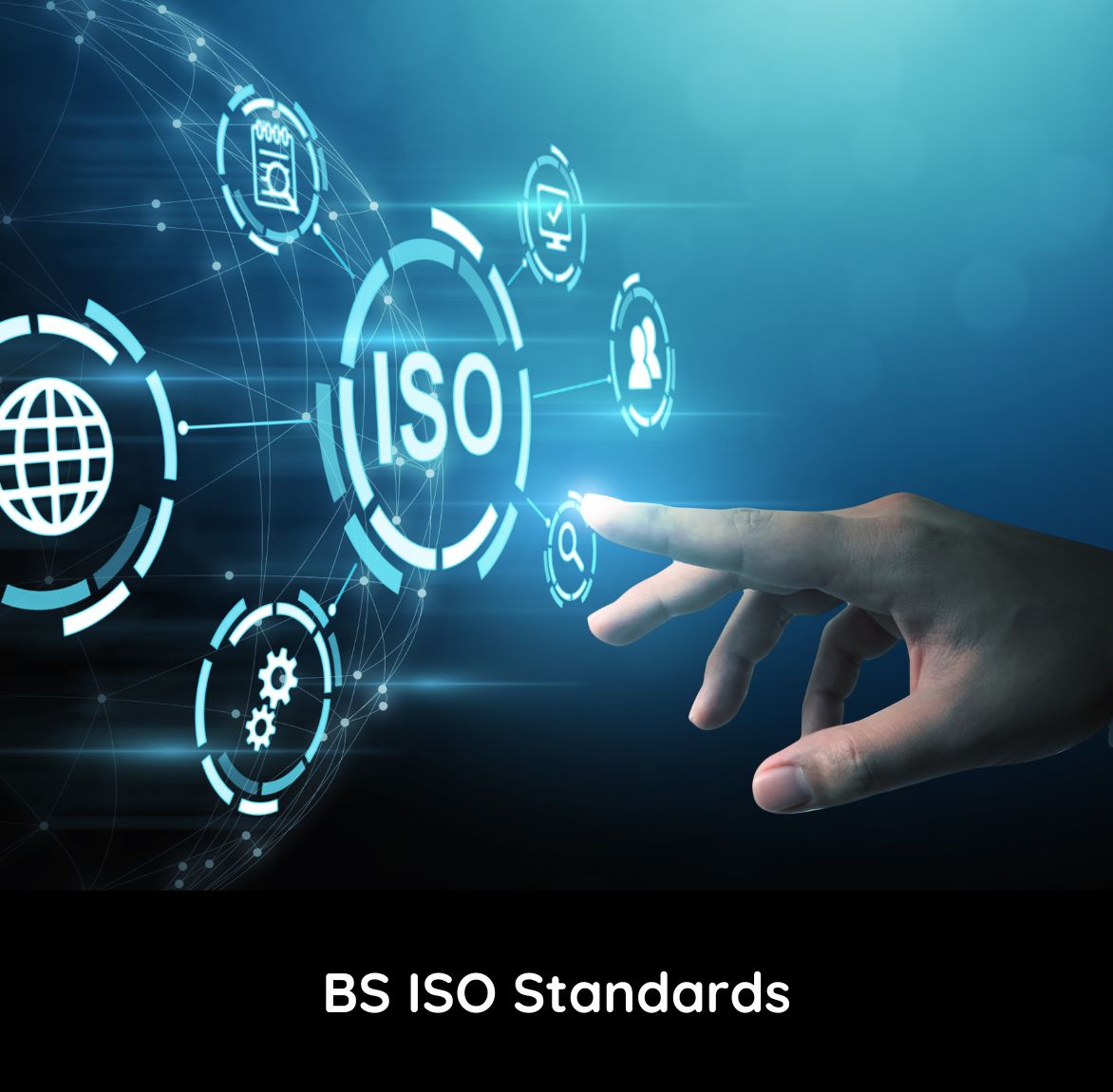BS ISO Standards: What are they? What are the benefits? How do they differ from EN ISO Standards?

A BS ISO certification is an ISO standard, that has been published or adopted by the British Standards Institution (BSI). It’s not uncommon for ISO standards to be described this way or using a different prefix depending on the country that has adopted the standard and certifying the standard.
At Blackmores we help businesses all over the UK and internationally to achieve the certification that is right for them. If you’re considering ISO standards and need assistance in selecting the best one, contact us today.
What is a BS ISO Standard
BS stands for British Standard. When a standard is labelled BS ISO, it means the British Standards Institution (BSI) has adopted the international ISO standard as a British Standard.
For example: BS ISO 9001 means it’s the ISO 9001 standard for quality management, but specifically issued under the British Standards framework.
Many countries will have their own prefixes when it comes to ISO. The prefix signifies that National standards bodies (like BSI in the UK) have adopted ISO standards and republished them nationally. It helps align national practices with global standards while still giving them a local identity or regulatory footing.
Benefits of Obtaining a BS ISO Standard
Like all ISO Standards world wide, there are many tangible benefits that can be derived from attaining BS/ISO certification. These include:
Improved efficiency – Analysing your business and processes can identify and strip out unnecessary costs and inefficiencies. By setting future objectives and targets, BS/ISO certification drives continual improvement within your organisation.
Reduced waste – Improving your processes will help to identify and eliminate physical waste and re-work wherever possible.
Competitive advantage – Improving the potential for new business over un-certified competitors. Many organisations now look for BS/ISO certification when putting contracts out to tender, or when compiling preferred supplier frameworks.
Reduced insurance premiums – The insurance industry is built around the principle of transferring risk to insurance companies. By demonstrating an organisation has de-risked their business by implementing and being certified to BS/ISO standards they are enabled to negotiate reductions in their employer liability insurance premiums and professional indemnity insurance.
Improved customer loyalty and satisfaction – The ability to consistently meet or exceed your customers’ expectations is what every organisation aspires to and BS/ISO provides the framework for this. Remember, your staff could be considered ‘internal’ customers – their loyalty is just as important!
Perhaps more important is the ability to recognise when something could or has gone wrong, and be able to do something about it before it impacts the service you deliver. All BS/ISO standards provide this mechanism which is key to retaining customer loyalty and satisfaction.
Reduced potential for prosecution and fines – Legislation, red tape and contractual obligations all have the potential for substantial financial penalties. If realised, these monetary penalties can make the difference between being able to run a business – or not. It’s also very difficult to quantify the cost to a damaged reputation with stakeholders and customers.
Informed decision making – An important element to any management system is monitoring and measuring performance. What you monitor and measure is decided by you when you set your objectives and targets. The results you collate provide data that will enable you to make informed decisions for future improvements.
Discover how Blackmores can help you achieve you ISO standards by contacting us.
Difference between ISO, BS ISO, EN ISO and BS EN ISO
There are many different prefixes when it comes to ISO certifications. If you need further clarification or if you have more questions, please don’t hesitate to contact our team.
It is important to note that whichever version of the ISO standard you achieve, they are all essentially the same. The prefixes simply define which country the certifying body is accredited by.
There are some instances where you may want to choose a certain awarding body based on your target market. We would recommend looking as
- ISO – international – The international standard is important if your organisation is trading internationally as it is recognised worldwide.
- BS ISO – British Standard adaptation – if you are trading solely within the UK you might want to look into a BS ISO certification as it is more focused to your target market.
- EN ISO – European – If your organisation does a lot of business with organisations within Europe then an EN ISO certification would be best suited for you.
- BS EN ISO – British and European – If you’re trading within the UK and through Europe then you can get a combined BS/EN ISO certification.
Work with Blackmores for Your ISO Certification
At Blackmores we can help you decide which certification is best for you and ensure we select the best awarding body to get you what you need. We are here to consult you on all things ISO.
Each of our isologists specialise in different areas of ISO, we ensure your consultant knows everything there is to know about the standard you want to achieve. If you’re not sure which type of ISO certification you should be working towards, we can also help you decide based on your target market, existing customer base and plans for the future.
ISO isn’t just about the certification. It’s about helping your business reach the goals and targets you set out to. Contact our team today for more information.


